Overview
The One Book…One Campus…One Community reading program is intended to build an intellectual and social rapport among students, staff, faculty and community members through the collective experience of reading, thinking about, and discussing challenging ideas and themes that raise important social issues, especially those surrounding issues of diversity. A common book is chosen to enrich perspectives and to invite conversations from across different fields of interest.
Programs Goals
- Create awareness of and ongoing dialogue about diversity issues.
- Facilitate a shared learning experience for students faculty, staff and the community.
- Emphasize reading as a significant component of a well-rounded education and existence.
- Provide opportunities for faculty, staff, and students to explore and discuss relevant social justice issues.
- Increase the level of awareness among participants about social inequality.
- Encourage participants to use the knowledge they gain to work personally and professionally for positive social change.
- Create an opportunity for the residents of Northern Indiana to share in an intellectually satisfying experience with students, faculty and staff through the discussion and analysis of quality literature.
- Promote positive interactions between local residents and the IU Northwest and Ivy Tech community.
Book Selection Criteria
- A work that addresses diversity issues.
- A reading complexity appropriate for college students and community members.
- Relevant themes and issues suitable to group discussion and analysis.
- A topic of relevance and appeal to both young adults and the general community.
- A subject that lends itself to community-university programming and special activities.
Discipline-specific Examples of Why an Exploration of Diversity is Important for the Educational Setting
Biology: The United Nations designated 2011–2020 as the United Nations Decade on Biodiversity. “In biodiversity, each species, no matter how big or small has an important role to play in ecosystem.” This biology statement is supported by evidence as a general trend. The greater the number of species present in an ecosystem, the more stable the system is. That's generally true, yet if one did a study where just one species was removed at random, then it would be hard to detect loss of stability. So the statement is generally supported by data but if one did a study picking random species their "importance" may not always shine through, that is just the nature of the biological situation!
Geosciences/Chemistry/Physics/Astronomy: Women and people of color have been historically underrepresented in the sciences. Furthermore, advances in science come about from scientifically logical “angles.” Scientifically logical angles are not based upon race because these angles are not perspectives but based upon natural laws. Therefore, an appreciation for diversity leads to better problem-solving, expands the talent pool and is important for long-term economic growth in a number of disciplines.
Communication: Since customer bases have become more diverse, it is important that companies have employees who speak their language, literally and from a cultural point of view.
Business/Computer Information Systems: Students are required to take classes in culture studies and the hope is that students will graduate with the ability to demonstrate understanding of and appreciation for the importance of the impact of globalization and diversity in modern organizations.
English: Exposure to others experiences and viewpoints make students more aware of their own opinions and biases. Since cultural context is so important, the greater the variety of cultural contexts, the richer the reading the class can make as a whole.
Fine Arts and Performing Arts: Historical contributions in the arts from Asia, Africa, Australia, Antarctica and the Americas are of great and longstanding importance; however, many of our schools have failed to recognize the artistic accomplishments from these parts of the world. This equity gap denies students the insight and opportunity to see him or herself in the context of a rich historical narrative.
History, Philosophy, Political Science, and Religious Studies: Any field of study as intimately involved with human life needs diversity if it is to be intellectually reputable. Political methodology and historical representation remain overwhelmingly white male enterprises. Failure to include the political ideologies of underrepresented people diminishes our collective ability to appreciate perspectives that are different from our own; a critical tool for a global society.
Mathematics: When groups of intelligent individuals are working to solve hard problems, the diversity of the problem solvers matters more than their individual ability. Thus, diversity is not distinct from enhancing overall quality–it is integral to achieving it.
Modern Languages: Cultures are transmitted through languages and languages also reflect the history of the people who have used them.
Psychology: Psychological research may have mistaken specific cultural twists for universal principles because most of the research subjects, as well as the researchers over the past 50 years, have been Americans or Europeans. Therefore, the field of psychology needs to be "internationalized" to make further progress toward understanding the universal nature of the mind.


